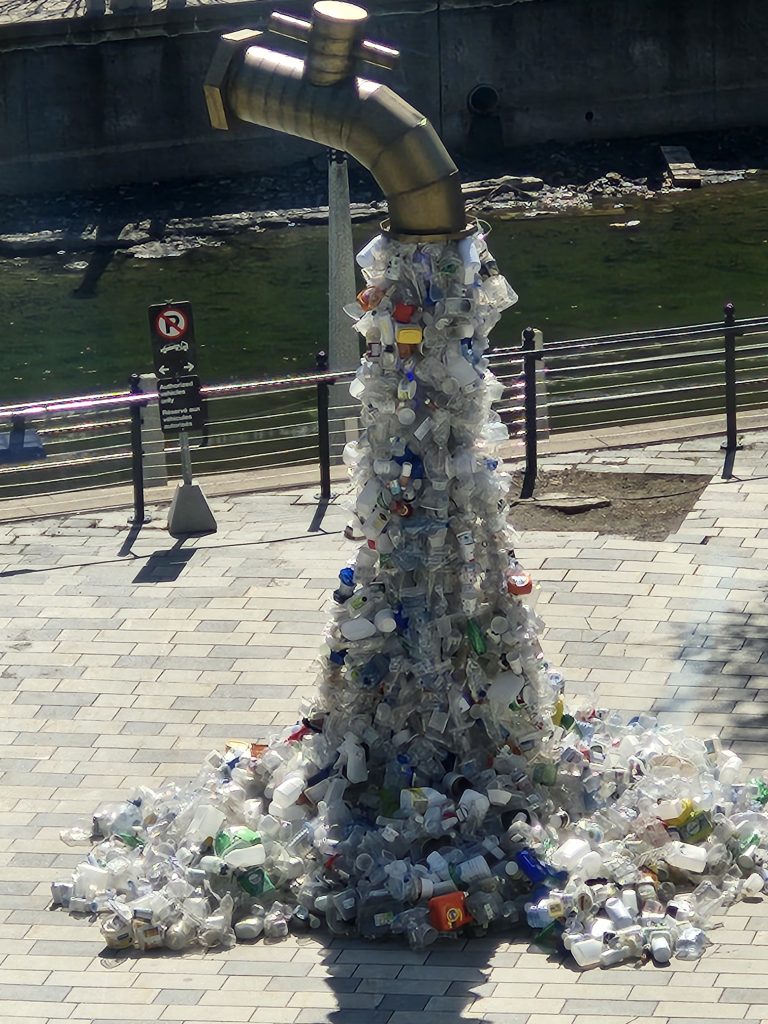Sue Wilson, Executive Director of the Office for Systemic Justice, Federation of Sisters of St. Joseph of Canada, was one of the 2,500 delegates from 174 countries gathered at the fourth session of the United Nations Intergovernmental Negotiating Committee on Plastic Pollution, held in Ottawa in April 2024. This UN committee was set up to develop an international, legally-binding treaty targeting plastics pollution and to eliminate plastic waste by 2040. A fifth, and final session, is scheduled for November 2024 in South Korea.
Every year, over 430 million tons of plastic are produced, much of which ends up in our waterways, forests, and even our food. Developed countries, including Canada, often ship their plastic waste overseas, contributing to this global issue. Scientists have long raised alarm about the chemicals in plastics and the risk they pose to human health and the environment.

The major issue of debate during the Ottawa meeting was that “[while] civil society groups are calling for countries to adopt a legally-binding target to slash plastic production 78 percent by 2040…[the] fossil fuel lobbyists are working hard to ensure the final draft of the treaty won’t contain a cut in plastic production… they were focused on recycling but without committing to putting the infrastructure in place for large-scale recycling.” Sue reflects that such an approach “relies on the myth of recycling,” ignoring data that shows that “only 9% of plastic gets recycled… [and that] most plastic is just not recyclable”. Real solutions will involve significant cuts in plastic production.
There was visible tension in meetings over fair representation of international stakeholders. A key issue was that “some civil society delegates were pushing for more representation and participation by Indigenous Peoples, whose communities are among those most affected by plastic pollution.” Civil society groups also demanded a human rights-based approach to negotiations, including a just transition for impacted communities and plastic waste workers.
In Canada, while environmental groups advocate for production caps on plastic, the government is focusing on measures like phasing out harmful chemicals, restricting single-use plastics, increasing recycling, and creating a Plastic Registry — a monitoring and reporting measure for companies on plastic production, recycling and reuse. As nations continue to negotiate an agreement in the final session, civil society groups will work for it to be as just and ambitious as possible.
